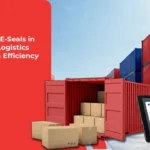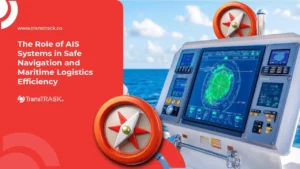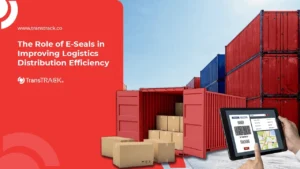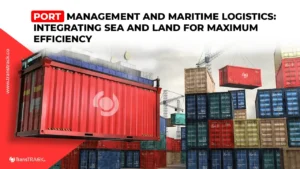How to Save Fuel with the Right Driving Techniques and Maintenance!
Posted on June 24, 2025 by Nur Wachda Mihmidati
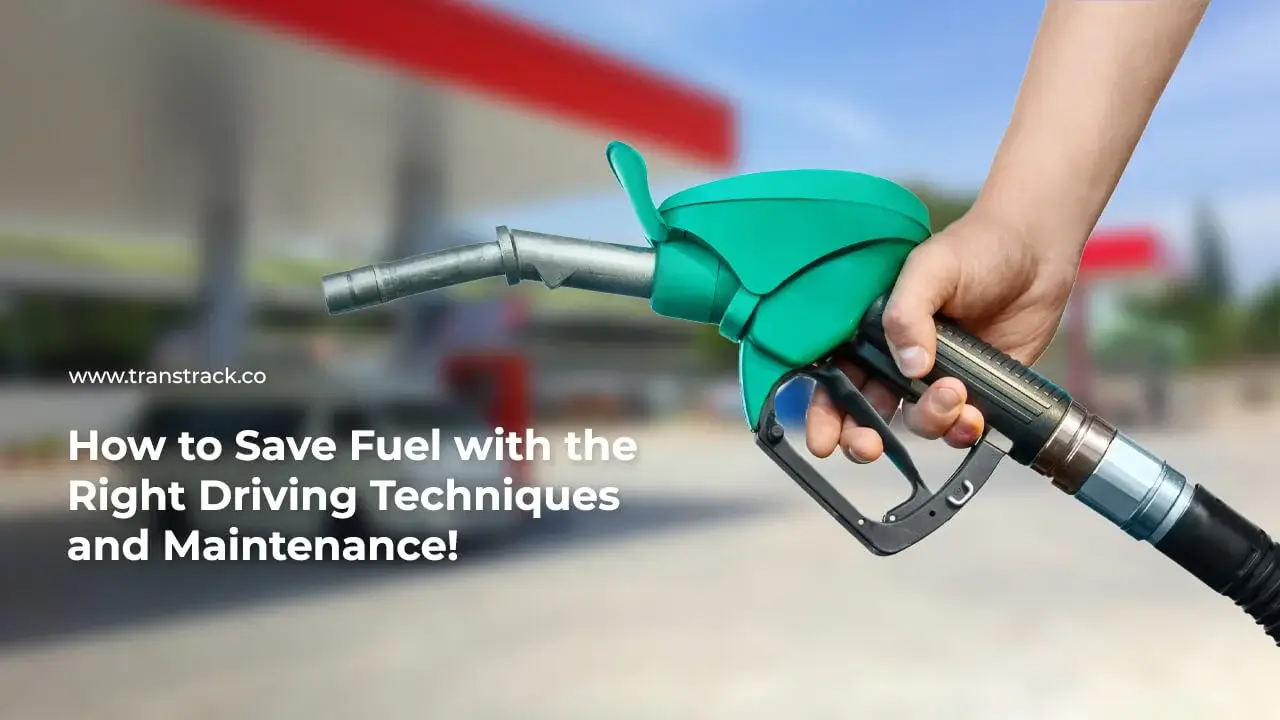
How to save fuel must be done by everyone. Because car fuel is one of the biggest costs in car usage. With fuel prices increasing, it is important for us to save fuel when driving a car. In addition to helping reduce costs, saving fuel can also help reduce the environmental impact generated by car use. In this TransTRACK article, we will provide some simple tips that can help you save fuel while driving your car. By following these tips, you can save money and also help protect the environment.
How to save fuel
Saving car fuel is one of the most important things that every driver should do. In addition to helping reduce expenses, saving fuel can also help protect the environment from the adverse effects of motor vehicle emissions. Here are some tips that can help you save on car fuel:
Avoid high speed
Driving at high speeds will force the car engine to work harder and consume more fuel. Try to drive at a steady speed, especially when driving on the highway.
Use the right gear
Using the right gear when driving will help the car engine work more efficiently. Use a higher gear when traveling on the highway or when road conditions are smooth. Avoid shifting too often and try to stay in the same gear for as long as possible.
Avoid sudden acceleration and braking
Sudden acceleration and braking will consume a lot of fuel and damage the braking system. Try to drive more relaxed and avoid situations that require sudden acceleration or braking.
Perform regular maintenance on the car
Performing regular maintenance on the car such as changing the oil, air filter, fuel filter, and spark plugs according to the schedule set by the car manufacturer will help the car engine work more efficiently and save fuel.
Check tire pressure regularly
Underinflated tires will make the car engine work harder and consume more fuel. Be sure to check tire pressure regularly and refill if necessary.
Use the air conditioner wisely
Air conditioning can reduce the efficiency of your car’s engine and consume a lot of fuel. Try to use the AC less and use it only when necessary.
Reduce car load
Cars that carry heavy loads will consume more fuel. Reduce the weight of the car by removing unnecessary items from the car.
By applying the above tips regularly, you can save fuel for your car and reduce your expenses as well as the environmental impact of motor vehicles. In addition, driving efficiently will also make your car last longer and minimize car maintenance costs in the future.
How to Save Fuel with Driving Techniques
In addition to the tips mentioned earlier, there are several fuel-efficient driving techniques that can help you reduce your car’s fuel usage. Here are some techniques that you can try:
Relaxed driving
Avoid driving aggressively or in a hurry as this can increase fuel consumption. Try to drive relaxed and maintain a steady speed.
Use momentum
Try to utilize the momentum of the vehicle when driving. For example, lower your speed when entering a downhill road and don’t step on the gas too often on an uphill road.
Turn off the engine when not needed
If you are stopped for more than 30 seconds, turn off your car engine. Having your car engine running when you don’t need it wastes fuel and damages the environment.
Avoid traffic jams
Try to avoid traffic jams or congestion by avoiding roads that are notoriously congested or avoiding rush hour.
Use fuel-saving technology
Some modern cars are equipped with fuel-saving technologies such as start-stop and regenerative braking systems. These technologies can help save fuel by turning off the engine when the car is stopped and converting the energy generated during braking into electrical energy that can be reused.
By applying fuel-efficient driving techniques, you can reduce fuel consumption and improve the efficiency of your car’s engine. This will help you save money and also help protect the environment from the harmful effects of motor vehicle emissions.
Factors Causing Fuel Waste in B2B Operations
In business operations, fuel efficiency is one of the important factors to reduce costs. Unfortunately, there are still many practices in the field that unwittingly cause significant fuel waste. Here are the main factors that are often the cause:
Aggressive driving behavior
Sudden acceleration, extreme braking and driving at high speeds consume more fuel. Apart from being wasteful, these driving styles also increase the risk of accidents and accelerate vehicle damage. Educating and monitoring driver behavior is an important first step for improvement.
Suboptimal delivery routes
The use of longer routes or frequent traffic jams makes the vehicle travel longer and harder. As a result, fuel consumption increases as the vehicle works harder than it should. A smart, data-driven routing system can help find the most efficient path.
Inconsistent vehicle maintenance
Vehicles that are rarely serviced experience reduced performance, requiring more fuel to perform optimally. Components such as air filters, spark plugs, and tire pressure that are not maintained are the main causes of fuel waste. A regular maintenance schedule is key to maintaining vehicle efficiency.
Idling and inefficient travel time
Engines that run for long periods of time while the vehicle is idling continue to consume fuel without delivering results. In addition, poor delivery scheduling can cause vehicles to be on the road longer than necessary. Proper time management and engine control can help cut this waste.
Fuel Consumption Challenges in Fleet Operations
In B2B fleet management, fuel consumption is a crucial cost component that is often difficult to control. The high dependency on fuel means that companies must be more careful in managing vehicle efficiency. The following two key challenges are often the main concerns of operations managers:
Contribution of fuel costs to total operating costs
Fuel costs can account for up to 30-50% of total fleet operating costs, depending on vehicle type and usage intensity. This makes managing fuel consumption a top priority in cost efficiency. Even a small amount of wastage can have a big impact on the overall budget.
Impact of fuel wastage on profitability
When fuel consumption goes out of control, profit margins are slowly but surely eroded. Wastage that occurs regularly will lead to increased costs that are difficult to cover by increasing revenue alone. Fuel efficiency is not just about savings, but about maintaining the company’s competitiveness and profits.
Fuel Saving Strategies for Businesses
Fuel cost is one of the biggest components in business fleet operations. Therefore, fuel saving strategies are key to improving efficiency and profitability. With technology support from TransTRACK, these strategies can be implemented effectively:
Fleet management system (FMS) implementation
TransTRACK’s FMS system allows real-time monitoring of the entire fleet, including driver behavior and fuel consumption. With features such as idling alerts, speed monitoring, and efficiency reports, companies can immediately identify potential waste. As a result, decision-making becomes faster and based on concrete data.
Route analysis and optimization with GPS technology
TransTRACK provides GPS and route optimization features that help determine the fastest and most fuel-efficient path. The system takes into account traffic conditions, drop-off locations, and travel time dynamically. Using more efficient routes will have an immediate impact on reducing daily fuel consumption.
Eco-driving training for drivers
TransTRACK supports eco-driving programs with detailed driving behavior reports such as sudden acceleration, hard braking, and idling habits. This data can be used as the basis for training to improve fuel-saving awareness and skills. With a more efficient driving style, fuel consumption can be significantly reduced.
Monitoring fuel usage through telematics
TransTRACK’s telematics technology keeps a detailed record of fuel consumption, distance traveled, and vehicle activity. The system can also be integrated with fuel sensors to detect leaks or fraud. With comprehensive monitoring, companies can maintain efficiency while preventing fuel abuse.
Data-driven vehicle maintenance schedule
TransTRACK provides a maintenance scheduling feature based on vehicle condition and actual mileage. This ensures that maintenance is carried out on time so that the vehicle remains efficient in combustion and does not waste fuel. Historical maintenance data also helps prevent breakdowns that could affect vehicle performance.
Positive Impact of Fuel Saving for Business
Fuel savings not only result in cost reduction, but also bring long-term strategic benefits to the company. By managing fuel consumption efficiently, businesses can improve operational performance while building a more responsible image. Here are some of the positive impacts that can be felt directly:
Reduced operational costs
Fuel is one of the biggest cost components in fleet operations. By saving fuel, companies can cut routine expenses and increase profit margins. TransTRACK helps reduce these costs by monitoring fuel consumption and identifying patterns of waste.
Improving delivery efficiency
Vehicles that use optimized routes and are driven efficiently will complete deliveries faster and on time. This has a direct impact on increasing productivity and customer satisfaction. Through TransTRACK’s GPS and route optimization features, delivery efficiency can be significantly improved.
Commitment to sustainability and emission reduction
Reducing fuel consumption means lowering greenhouse gas emissions and the company’s carbon footprint. This is not only good for the environment, but also supports ESG policies and corporate social responsibility. TransTRACK enables monitoring of emissions and fuel consumption as part of a scalable sustainability strategy.
Fuel Saving Maintenance Tips
In addition to fuel-efficient driving techniques, proper maintenance of the vehicle can also help save fuel. Here are some fuel-saving maintenance tips you can try:
Routine maintenance
Performing regular maintenance on your vehicle can help improve fuel efficiency. Be sure to perform routine servicing such as changing the air filter, cleaning the fuel injection system, and changing the spark plugs.
Check tire pressure
Make sure the tire pressure on your vehicle is always in the right condition. Underpowered tires will increase drag and reduce fuel efficiency.
Use the right engine oil
Use engine oil in accordance with the car manufacturer’s recommendations. Improper oil can increase friction in the engine and worsen fuel efficiency.
Clean the carburetor
If your vehicle uses a carburetor, be sure to clean it regularly. A dirty carburetor can affect fuel efficiency and engine performance.
Change teeth appropriately
Be sure to change gears appropriately and on time. Driving in a gear that is too low or too high can reduce fuel efficiency.
By keeping your vehicle in good condition and performing regular maintenance, you can improve fuel efficiency and save money. In addition, proper maintenance will also help extend the life of your vehicle and reduce the adverse impact of vehicle emissions on the environment.

Saving fuel in your car is not only good for your pocket, but also for the environment. By applying fuel-efficient driving techniques and performing proper maintenance on your vehicle, you can reduce fuel usage and keep the environment healthy. In addition, saving fuel can also help reduce exhaust emissions that can damage the environment and human health.
Immediately apply the tips and techniques to save car fuel mentioned earlier, and don’t forget to perform regular maintenance on your vehicle. By doing so, you can save money and help maintain a cleaner and healthier environment.
In addition, there are solutions from TransTRACK to be able to save fuel yourself, namely by using fuel sensor to balance your fuel, as well as a limiter to limit your speed so as not to be too wasteful in terms of fuel. Not only that, you will also get other excellent features in terms of safety and productivity optimization. So start using TransTRACK and make the most of all its features!
Topic :
 Bahasa Indonesia
Bahasa Indonesia




